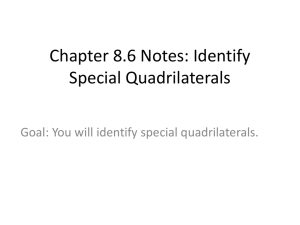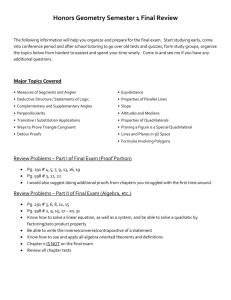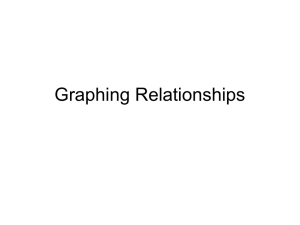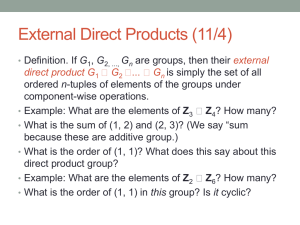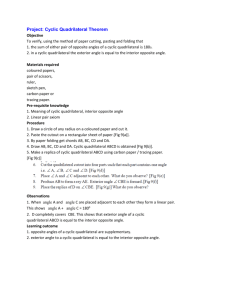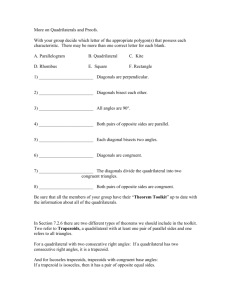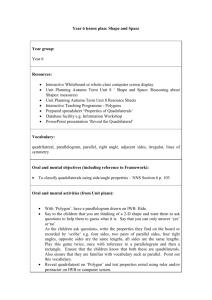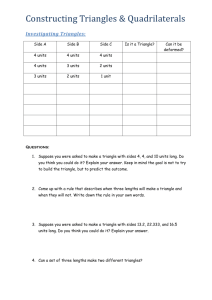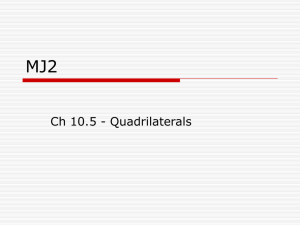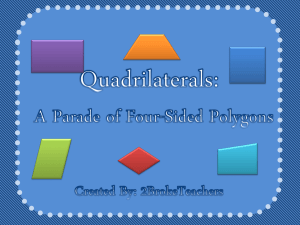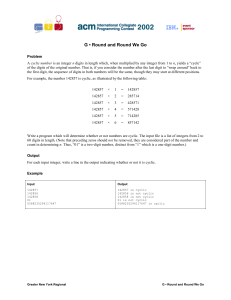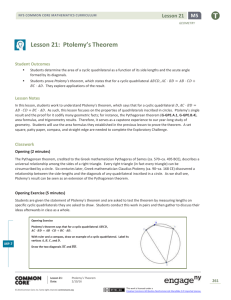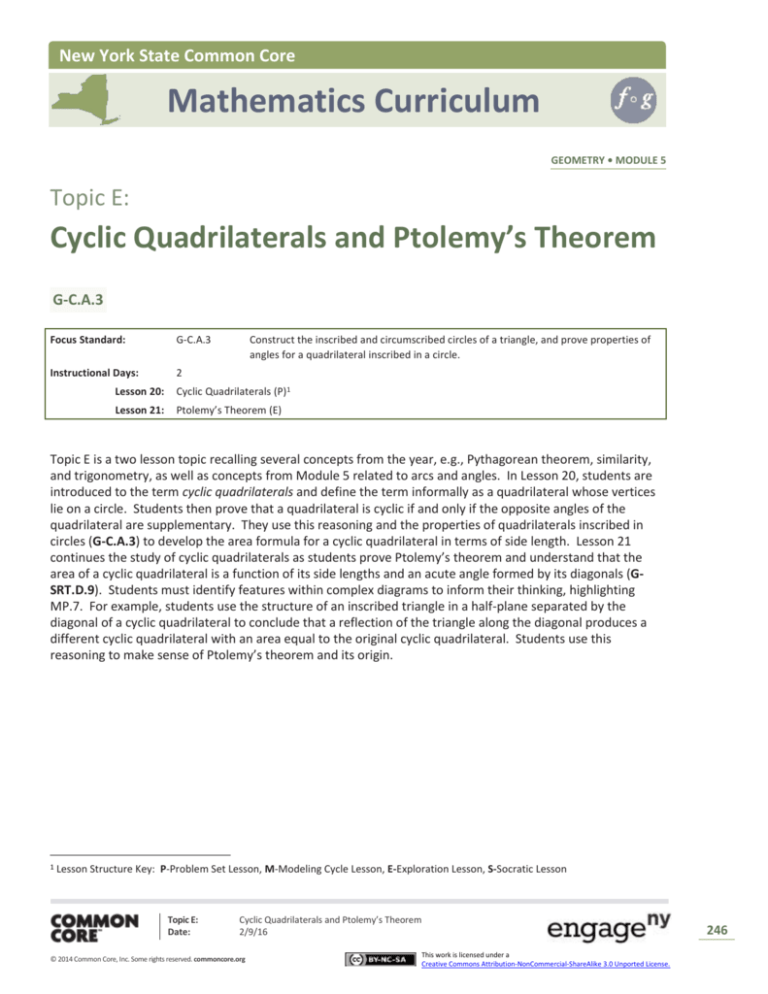
New York State Common Core
Mathematics Curriculum
GEOMETRY • MODULE 5
Topic E:
Cyclic Quadrilaterals and Ptolemy’s Theorem
G-C.A.3
Focus Standard:
G-C.A.3
Instructional Days:
2
Construct the inscribed and circumscribed circles of a triangle, and prove properties of
angles for a quadrilateral inscribed in a circle.
Lesson 20:
Cyclic Quadrilaterals (P)1
Lesson 21:
Ptolemy’s Theorem (E)
Topic E is a two lesson topic recalling several concepts from the year, e.g., Pythagorean theorem, similarity,
and trigonometry, as well as concepts from Module 5 related to arcs and angles. In Lesson 20, students are
introduced to the term cyclic quadrilaterals and define the term informally as a quadrilateral whose vertices
lie on a circle. Students then prove that a quadrilateral is cyclic if and only if the opposite angles of the
quadrilateral are supplementary. They use this reasoning and the properties of quadrilaterals inscribed in
circles (G-C.A.3) to develop the area formula for a cyclic quadrilateral in terms of side length. Lesson 21
continues the study of cyclic quadrilaterals as students prove Ptolemy’s theorem and understand that the
area of a cyclic quadrilateral is a function of its side lengths and an acute angle formed by its diagonals (GSRT.D.9). Students must identify features within complex diagrams to inform their thinking, highlighting
MP.7. For example, students use the structure of an inscribed triangle in a half-plane separated by the
diagonal of a cyclic quadrilateral to conclude that a reflection of the triangle along the diagonal produces a
different cyclic quadrilateral with an area equal to the original cyclic quadrilateral. Students use this
reasoning to make sense of Ptolemy’s theorem and its origin.
1
Lesson Structure Key: P-Problem Set Lesson, M-Modeling Cycle Lesson, E-Exploration Lesson, S-Socratic Lesson
Topic E:
Date:
Cyclic Quadrilaterals and Ptolemy’s Theorem
2/9/16
© 2014 Common Core, Inc. Some rights reserved. commoncore.org
246
This work is licensed under a
Creative Commons Attribution-NonCommercial-ShareAlike 3.0 Unported License.

